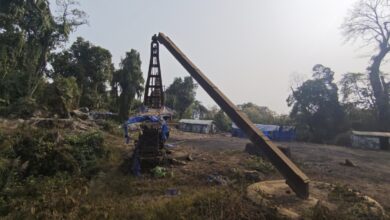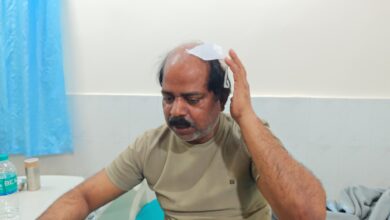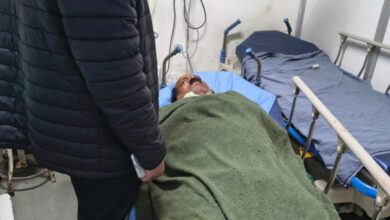Need for change in education
The state's current education system has several pain points which the govt needs to focus on immediately

Shillong was once recognised as the education hub of the North East. The crown was lost long back and the current education system in the state is in a pitiable condition.
The weakness in the state’s education system has been exposed every time teachers took to the streets demanding either pending salary or regularisation of job. Teachers nurture the future of a country. When they leave the classroom to stand on the road with placards, asking for basic rights, then the authorities should realise that the problem is deep-rooted and needs immediate attention.
“The system will be able to deliver quality education only when the government starts taking care of teachers. But in Meghalaya, the state government has failed. Teachers are being forced to come out to streets to air their grievances,” said Aristotle C Rymbai, president of the Meghalaya SSA Schools Association.
The plight of SSA, deficit, ad-hoc and 4th teachers in the state is not unknown. As far as SSA teachers are concerned, there is no promising career prospect and no motivation for performance. They are also not entitled to leaves, except 15 days of casual leave annually, and other benefits as enjoyed by regular teachers.
When Sunday Monitor contacted Ambrose Marak, secretary of Education, to know about measures taken to mitigate the problems of the protesting teachers, he said he would not comment anything on phone. When the reporter tried to explain that she was in home quarantine and could not meet him, Marak threatened to sue for reasons best known to him.
No infrastructure
For holistic education and healthy growth of children, especially at the primary level, a conducive and hygienic environment is important. But most of the rural schools in the state lack basic amenities and fail to provide health and hygiene.
This reporter, during a visit to a secondary school in Jirang, Ri Bhoi, found that the classrooms were in a shambles and the toilet meant for students were filthy. The students’ frustration could be gauged from the writing on the toilet wall, “So dirty!”
Some primary schools in remote areas do not even have proper buildings and students sit on the floor in roofless classrooms.
Dr Sanjeev Kumar Singh, associate professor at Union Christian College, who was part of a survey of rural schools, said the findings show inadequate infrastructure in most of the rural schools and lack of hygiene.
According to Rymbai, 80-90% of government schools “are not compliant with the complete set of RTE infrastructure indicators as per the Performance Grading Index (PGI) Report of the Ministry of Education”.
“There are several unresolved issues… There is no drinking water facility, separate toilet for girl students and proper building. There is a shortage of trained teachers too. If we compare SSA and government schools, we will see the former are better off in terms of student enrolment, qualified teachers, infrastructure and students’ performance,” said Rymbai.
Singh said the survey found lack of trained teachers and academic support, like study kits and IT infrastructure. A few affected students from rural areas told Sunday Monitor that teachers skip classes most of the days.
“Some of the permanent teachers keep substitutes as they have other job/businesses. Those attending classes are not always trained,” said one of the students on condition of anonymity.
This information could not be confirmed independently.
The student-teacher ratio in government schools is also abysmal. “The state government should take appropriate action to maintain the ratio so that it will not be a burden on teachers and also students,” added Rymbai.
Implementation of the Centre’s mid-day scheme is also not done properly in rural pockets. Poor quality of foodgrain and poor pay scale for cooks are some of the issues which the state government needs to look into.
“The government only focuses on statistics as to how many schools and students are being covered under this scheme but failed to give importance to quality. The cook-cum-helper everywhere is paid a paltry Rs 1,000 per month. As per guidelines, they have to cook every day, which is next to impossible with the present honourarium,” said Rymbai.
Need a change
The current education system needs several changes with a deep focus on vernacular medium. The state does not have schools in vernacular medium which would have helped students in rural areas to understand subjects better and perform well.
Uma Purkayasthya, former principal of Government Girls’ High School, said there were no textbooks in local languages in the eighties and English was the only medium for local students. “While Bengali and Assamese students would answer in their respective mother tongues, Khasi and Garo students wrote exams in English. Then the state government introduced a rule where the medium was changed to English. There are still no textbooks in local languages. This is an important issue and needs attention,” she added.
The veteran educationist also pointed out the disparity in performance in government and private schools. “Now, government schools’ results in board examinations have deteriorated. Why? Do the government officials think about it? None of the high-ranking government officials sends children to government schools. Had they have done it, then they would have thought about bettering these schools. But that is not happening,” she rued.
Prof DRL Nonglait, president of Khasi Authors’ Society, both MBoSE and ICSE boards have Khasi as a subject till Class XII.
“In vernacular schools in the state, especially in rural schools, the medium of teaching is local languages though the text is in English. The medium of examination is also English. It is only in English medium schools like Pine Mount and Synod English School that students are taught in English. Having said that, I would like to say that if we had books in local languages for subjects like Mathematics, students would have found it easier to understand. The language problem becomes the problem of the subject,” he explained.
Nonglait stressed the need for a policy mandating local language medium school and English medium school so that the overall academic performance improves.
While the lack of textbooks in local languages becomes a barrier for many students in remote areas, the system of education, which is “score-centric”, also creates hurdle for students to acquire knowledge.
“Education in our state, especially in the elementary section, is score-centric. It seems education in the state is information-based rather than knowledge-based. Students do not get enough opportunity to express their creative side. Students have no option but to stick to the tried and tested practices to get the desired scores at the end of the year,” said Rymbai.
“This education system should be changed and it is time for each one of us as responsible citizens to make the change because education provided should meet the needs of students. It should allow students to enhance their skills and get better employment options in the near future. Therefore, steps must be taken to standardise the quality of education so that everyone gets equal and unbiased knowledge and the opportunity to grow,” he added.
Singh said the survey found that in villages, students have no support at home to do their lessons because in most of the cases, parents are illiterate. “Most of the time, children do not come to school because they have to go to the field to work with parents. At the same time, schools are also failing to attract students,” he added.
The survey showed that schools in semi-urban and urban areas are in a better situation.
Suggestions
“Tell your heart to accept the truth/ does not matter if it is unpleasant,” wrote Nobel laureate Rabindranath Tagore. The truth about the education system in the state is that it requires immediate attention.
As Meghalaya inches towards the golden jubilee of its statehood, it is important that policy makers focus on the problems buffeting the system and take corrective measures.
Children must grow up with a deep knowledge of local history and a sense of belonging to the culture and tradition. Purkayasthya suggested that the government, with the help of educationists, should encourage more discussions on local freedom fighters and heroes. “Celebrating birth or death anniversary of prominent figures for a day will not go too far. There has to be more discussions,” she said.
The state government should also take “special care” of teachers and the profession must provide an attractive career choice, observed Rymbai.
“Also, as teachers, we want rules to be laid down which will help in achieving the highest quality in education. Our system will be able to deliver good education only when the government starts taking care of teachers,” he reiterated.
The state government must realise that unless the education system is strengthened, the progress of Meghalaya will remain stunted. This is one resolution that it should make on the 50th anniversary of statehood.
~ Team Sunday Monitor





